Insuring a Vacant Commercial Property in Florida: What You Need to Know
See How We're Different
or call us: 954-233-0733
Owning a commercial property in Florida can be a lucrative investment, but it comes with its own set of challenges, particularly when the property is vacant. Insuring a vacant commercial property requires careful consideration and understanding of specific risks and insurance options. This article will guide you through the essential aspects of insuring a vacant commercial property in Florida, ensuring you are well-informed to protect your investment.
Understanding Vacant Commercial Properties
Vacant commercial properties are those that are unoccupied and not currently generating income. These properties can include office buildings, retail spaces, warehouses, and industrial sites. The vacancy can be temporary, such as during a transition between tenants, or long-term due to market conditions or other factors. The reasons for vacancy can vary widely, from economic downturns that lead to reduced demand for commercial space to shifts in consumer behavior, such as the rise of e-commerce impacting traditional retail spaces.
Understanding the implications of vacancy is crucial for property owners. A vacant property can attract various risks, including vandalism, theft, and damage from weather-related events. Additionally, the lack of regular maintenance can lead to further deterioration, increasing the potential for costly repairs. Moreover, the longer a property remains vacant, the more difficult it may become to lease or sell it in the future, as potential tenants or buyers may perceive the property as undesirable or problematic. This can lead to a vicious cycle where the property’s value continues to decline, further complicating the owner's financial situation.
The Risks Involved
Insuring a vacant commercial property poses unique challenges. One of the primary risks is vandalism, as unoccupied buildings are often seen as easy targets. Broken windows, graffiti, and other forms of damage can significantly decrease the property's value. In many cases, the cost of repairing such damages can far exceed the initial investment in the property, leading to significant financial loss for the owner. Furthermore, vacant properties can also become havens for illegal activities, which can further tarnish the property's reputation and deter future tenants.
Another concern is liability. If someone were to enter the vacant property and sustain an injury, the property owner could be held liable. This risk is heightened if the property is not properly secured. Furthermore, natural disasters, such as hurricanes or flooding, can cause extensive damage to vacant properties, particularly in Florida's climate. The combination of these risks necessitates a proactive approach to property management, including regular inspections and prompt repairs, to mitigate potential liabilities and protect the owner's investment.
Insurance Considerations
Standard commercial property insurance policies often do not cover vacant properties, or they may come with limited coverage. Therefore, it is essential to seek specialized insurance options tailored for vacant properties. These policies typically provide coverage for risks associated with vacancy, such as vandalism and liability. Additionally, property owners should also explore options for loss of income coverage, which can help offset the financial impact of prolonged vacancy.
Additionally, property owners should consider the duration of vacancy when selecting an insurance policy. Short-term vacancies may require different coverage than long-term vacancies, impacting the overall cost and terms of the insurance. It is also advisable to keep detailed records of the property's condition and any maintenance performed, as this documentation can be invaluable when filing claims or negotiating with insurance providers. Engaging with a knowledgeable insurance agent who specializes in commercial properties can provide valuable insights into the best coverage options available, ensuring that property owners are adequately protected against the unique challenges posed by vacant commercial properties.
Types of Insurance for Vacant Commercial Properties
When insuring a vacant commercial property, several types of insurance coverage may be available. Understanding these options can help property owners make informed decisions about their insurance needs.
Vacant Property Insurance
Vacant property insurance is specifically designed for properties that are unoccupied for an extended period. This type of policy typically covers risks such as vandalism, theft, and liability. It is important to note that vacant property insurance may have different terms and conditions compared to standard commercial property insurance.
Property owners should review the policy details carefully, as some insurers may impose restrictions or exclusions based on the length of vacancy or the property's condition. Additionally, premiums for vacant property insurance can be higher than those for occupied properties due to the increased risk. Owners may also want to consider regular inspections of the property to mitigate risks and potentially lower their premiums, as many insurers favor properties that are well-maintained and monitored.
General Liability Insurance
General liability insurance is essential for any commercial property owner, including those with vacant properties. This coverage protects against claims of bodily injury or property damage that may occur on the premises. Even if a property is vacant, liability risks still exist, making this coverage crucial.
Property owners should ensure that their general liability insurance extends to vacant properties. This may require additional endorsements or adjustments to the policy to ensure adequate protection. Furthermore, it’s advisable for property owners to implement safety measures, such as securing entrances and installing surveillance cameras, which can not only help deter potential incidents but also demonstrate to insurers that proactive steps are being taken to reduce liability risks.
Property Insurance for Natural Disasters
Florida is prone to natural disasters, including hurricanes, floods, and tropical storms. Property owners should consider purchasing additional coverage for natural disasters, particularly if the vacant property is located in a high-risk area. Standard property insurance may not cover all types of damage caused by these events, so specialized coverage may be necessary.
Flood insurance, for instance, is often a separate policy that must be purchased in addition to standard property insurance. Understanding the specific risks associated with the property's location can help owners select the appropriate coverage. Additionally, owners may want to explore business interruption insurance, which can provide financial assistance if a natural disaster impacts the property and leads to a loss of income. This can be particularly beneficial for properties that may be leased or have potential tenants lined up, as it helps safeguard against unforeseen financial setbacks during recovery periods.
Factors Affecting Insurance Premiums
Several factors can influence the cost of insuring a vacant commercial property in Florida. Being aware of these factors can help property owners make strategic decisions to manage their insurance expenses.
Location
The location of the vacant property plays a significant role in determining insurance premiums. Properties situated in high-crime areas or regions prone to natural disasters may incur higher premiums due to the increased risk of loss. Conversely, properties in safer neighborhoods may benefit from lower insurance costs. Additionally, proximity to emergency services, such as fire stations and police departments, can also influence premiums. Properties located near these services may receive discounts, as the response time to incidents is shorter, reducing the potential for significant losses.
Property Condition
The overall condition of the vacant property also affects insurance premiums. Well-maintained properties that are regularly monitored and secured may qualify for lower premiums. In contrast, properties that show signs of neglect or deterioration may be viewed as higher risk, leading to increased insurance costs. Factors such as the age of the building, the state of the roof, and the integrity of the plumbing and electrical systems can all contribute to the insurer's assessment. Regular inspections and maintenance can not only help in keeping the property in good shape but also serve as evidence to insurers that the property is being cared for, potentially leading to more favorable premium rates.
Length of Vacancy
The duration of the vacancy can impact insurance rates. Properties that have been vacant for an extended period may face higher premiums due to the increased likelihood of vandalism and other risks. Insurers may require property owners to provide documentation or evidence of efforts to maintain and secure the property during its vacancy. Furthermore, the type of commercial property can also play a role; for example, a vacant retail space may be more susceptible to theft compared to a vacant warehouse. Property owners might consider implementing security measures such as surveillance cameras or hiring security personnel, as these actions can demonstrate to insurers that they are actively managing the risks associated with vacancy, potentially leading to lower premiums.
Steps to Insure a Vacant Commercial Property
Insuring a vacant commercial property involves several steps. Following a structured process can help property owners secure the right coverage and protect their investment effectively.
Assess the Property's Risks
Before seeking insurance, property owners should conduct a thorough assessment of the property's risks. This includes evaluating the location, condition, and any potential vulnerabilities. Understanding these risks will help in selecting the appropriate insurance coverage and determining the necessary policy limits.
For instance, properties located in areas prone to natural disasters, such as floods or earthquakes, may require additional coverage options. Similarly, older buildings may have unique structural issues that could increase their risk profile. Property owners should also consider the security measures in place, such as alarm systems or surveillance cameras, as these can mitigate risks and potentially lower insurance premiums.
Consult with Insurance Professionals
Working with an insurance broker or agent who specializes in commercial property insurance can be invaluable. These professionals can provide insights into the best coverage options for vacant properties and help navigate the complexities of insurance policies.
Additionally, they can assist in comparing quotes from multiple insurers, ensuring property owners find the best coverage at a competitive price. Brokers can also offer advice on specific endorsements or riders that may be beneficial for vacant properties, such as vandalism coverage or liability protection, which can be crucial in safeguarding against unexpected incidents.
Review and Update Coverage Regularly
Once insurance is secured, it is essential to review the coverage regularly, especially if the property's status changes. If the property becomes occupied or undergoes renovations, adjustments to the insurance policy may be necessary. Regular reviews can help ensure that the coverage remains adequate and relevant to the property's current condition.
Moreover, property owners should stay informed about changes in local laws and regulations that could affect their insurance needs. For example, new zoning laws or building codes may necessitate updates to the property that could impact its risk profile. Engaging in periodic discussions with the insurance provider can help identify any gaps in coverage and ensure that the property remains adequately protected against evolving risks.
Common Exclusions in Vacant Property Insurance
Understanding common exclusions in vacant property insurance is crucial for property owners. Being aware of what is not covered can prevent unpleasant surprises when filing a claim.
Wear and Tear
Most insurance policies do not cover damage resulting from normal wear and tear. This means that if a property deteriorates over time due to lack of maintenance, the insurance may not cover the associated repair costs. Property owners should prioritize regular inspections and maintenance to mitigate this risk. Regular upkeep, such as painting, roof inspections, and plumbing checks, can not only preserve the property’s value but also serve as evidence of responsible ownership, which can be beneficial if a claim needs to be filed.
Acts of God
While many policies cover natural disasters, some may exclude certain events categorized as "Acts of God." This can include specific types of flooding or damage caused by earthquakes. Property owners should carefully review the policy to understand which events are covered and consider additional coverage if needed. It's also wise to stay informed about the geographical risks associated with the property location, as some areas may be more prone to certain natural disasters. Investing in supplemental insurance or disaster recovery plans can provide an added layer of protection against these unpredictable events.
Neglect or Abandonment
Insurance policies often include clauses that exclude coverage for damages resulting from neglect or abandonment. If a property owner fails to take reasonable steps to secure or maintain the property, the insurer may deny a claim related to damages arising from such neglect. It is essential to demonstrate ongoing efforts to maintain the property, even when it is vacant. This can include regular visits to the property, securing doors and windows, and even hiring a property management service to oversee the premises. Documenting these efforts through photographs and maintenance logs can be invaluable in case of a dispute with the insurance provider.
Tips for Maintaining a Vacant Commercial Property
Maintaining a vacant commercial property is essential for minimizing risks and ensuring that the property remains insurable. Implementing proactive measures can help protect the investment and reduce insurance costs.
Regular Inspections
Conducting regular inspections of the vacant property is crucial. This allows property owners to identify any issues early on, such as water leaks, pest infestations, or signs of vandalism. Regular inspections also demonstrate to insurers that the property is being actively monitored, which may positively impact insurance premiums.
Secure the Property
Securing the property is vital to prevent unauthorized access and potential vandalism. This can include installing security systems, reinforcing doors and windows, and maintaining adequate lighting around the premises. A well-secured property is less likely to attract criminal activity, reducing the risk of loss.
Maintain Utilities
While it may seem counterintuitive, maintaining basic utilities, such as electricity and water, can help protect a vacant property. For instance, keeping the heating system operational can prevent pipes from freezing in colder months. Additionally, maintaining utilities can deter vandalism, as a well-lit property is less inviting to intruders.
Conclusion
Insuring a vacant commercial property in Florida requires careful consideration of various factors, including risks, coverage options, and insurance premiums. By understanding the unique challenges associated with vacant properties and taking proactive measures to maintain and secure them, property owners can protect their investments effectively.
Consulting with insurance professionals and regularly reviewing coverage can ensure that property owners are adequately protected against potential risks. With the right approach, insuring a vacant commercial property can be a manageable and worthwhile endeavor.








